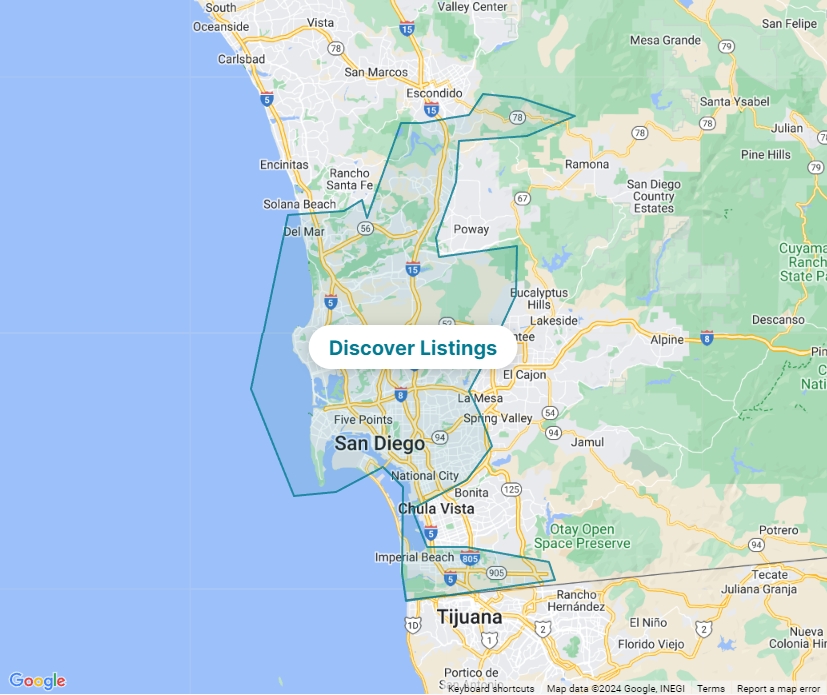

San Diego, United States Airbnb Rules &
Regulations
Last updated on: 4th July, 2025
Don’t worry, Airbnb is legal in San Diego!
Here are some statistics! As of 4th July, 2025, there are 11,074 listings
available in
San Diego from
Airbnb alone. Surf Style manages 155 listings, while Bluewater Vacation Homes and Urban Sands operates 102 and 100 respectively.
Out of 11,074 listings, 90% of listings have short-term rental
licenses.
Most listings have local permit to operate as a short-term rental. Keep reading this to learn more about short-term rental rules.

Occupancy Rate
70%
11,074
Number of Listings
Short-term Rental Regulation & Rules in San Diego
Overview of Airbnb Regulations in San Diego (2024)
San Diego has established a comprehensive set of regulations aimed at managing short-term rentals, specifically targeting platforms like Airbnb and VRBO. These regulations are designed to strike a balance between encouraging tourism and maintaining neighborhood quality of life. Here are the key elements of the regulations that hosts and potential guests should be aware of:
Licensing Requirements
- Short-Term Residential Occupancy (STRO) License: All hosts wishing to rent properties for less than 30 days must secure an STRO license from the City of San Diego. This involves confirming property ownership and adherence to local health and safety codes.
- Transient Occupancy Tax (TOT) Certificate: Hosts are required to obtain a TOT Certificate to collect and remit occupancy taxes, set at 10.5% of the rental amount.
- Business Tax Account Number: Every short-term rental operator must register for a Rental Unit Business Tax Account Number to ensure proper reporting and payment of applicable taxes.
Rental Caps and Tiers
- Rental Caps: Whole-home rentals, available for more than 20 days a year, are capped at 1% of the city’s housing inventory.
- Tiered Licensing Structure: San Diego's rental permits are divided into tiers based on usage, including part-time rentals, home-sharing, and whole-home rentals, with specialized considerations for high-demand areas like Mission Beach.
Operational Guidelines
- Safety Standards: Hosts must equip properties with smoke detectors, carbon monoxide detectors, and fire extinguishers, and ensure compliance with local health and safety regulations.
- Noise Control: Strict noise regulations are enforced under the Good Neighbor Policy, prohibiting excessive noise and disturbances. Adherence to community standards is mandatory.
- Parking Regulations: Hosts must provide adequate parking solutions as part of local code requirements to avoid traffic and congestion issues stemming from short-term rentals.
Enforcement and Penalties
- Non-compliance with STRO regulations can lead to financial penalties, with first-time violations typically resulting in warnings or small fines, escalating for repeat offenses to potentially thousands of dollars.
- The city conducts audits and has a complaint process to monitor compliance, ensuring rules are upheld.
Impact on Housing and Community
- Housing Availability: Short-term rentals have affected the long-term housing market, with some properties being converted to short-term listings, leading to concerns about housing affordability.
- Local Community Dynamics: Balancing the interests of residents with those of visitors is crucial. The city aims to preserve community character while allowing homeowners to benefit from short-term rental opportunities.
Conclusion
San Diego's approach to regulating short-term rentals reflects an ongoing effort to manage the impacts of tourism while ensuring that local communities remain vibrant and livable. By adhering to these regulations, hosts can ensure they operate within the law, while also fostering positive guest experiences and contributing to the local economy. For potential hosts, understanding and following these guidelines is essential for successful participation in San Diego's short-term rental market.
Airbnb Statistics in San Diego! 🚀
Currently, there are 11074 Airbnb listings in San Diego, with 39% of entire houses earning up to
$3,930
a month
. The
Average Occupancy Rate in
San Diego is 70% and the average daily rate is
$224.
According to vacation rental market data source Airbtics,
a 2-bedroom apartment in San Diego can make
up to $62,348
each year.
Signup and check out more in-depth
vacation rental data for free.
Explore
San Diego's Airbnb
Data
⟶


